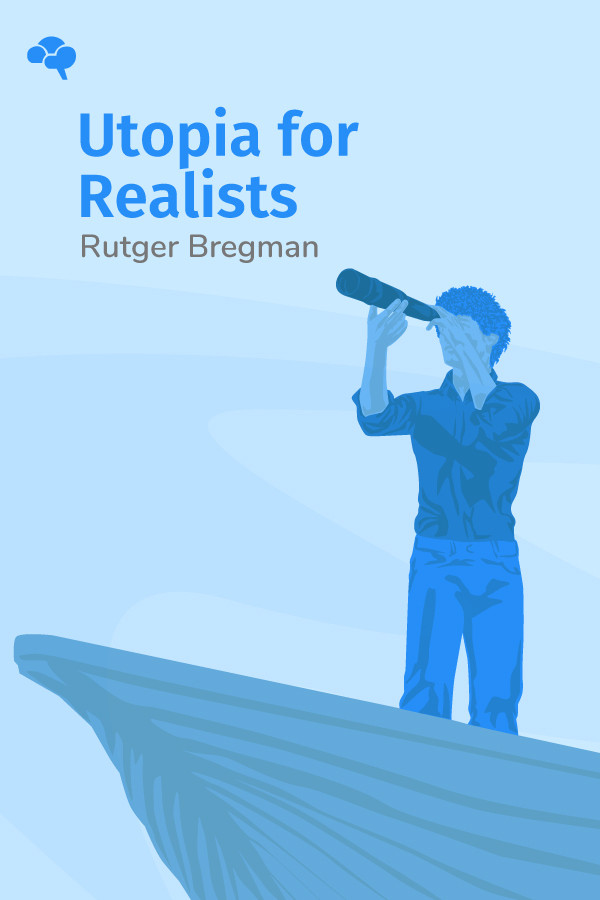Rutger Bregman
Rutger C. Bregman (born 1988) is a Dutch popular historian and author. He has published four books on history, philosophy, and economics, including Utopia for Realists: How We Can Build the Ideal World, which has been translated into thirty-two languages. His work has been featured in The Washington Post, The Guardian and the BBC. He has been described by The Guardian as the "Dutch wunderkind of new ideas" and by TED Talks as "one of Europe's most prominent young thinkers". His TED Talk, "Poverty Isn't a Lack of Character; It's a Lack of Cash", was chosen by TED curator Chris Anderson as one of the top ten of 2017.
Humankind: A Hopeful History
The majority of people all over the world take it for granted that people are bad. But what if we have it all wrong? Dutch historian Rutger Bregman examines findings from the social sciences and argues that the data strongly suggests that people are good by nature.
Utopia for Realists: How We Can Build the Ideal World
In Medieval Europe, there was an imaginary land called Cockaigne that the common folk would dream about. You arrive at Cockaigne by successfully eating through several miles of rice pudding, and once ushered into this glorious realm, pies and cakes rained down from the heavens, the rivers overflowed with wine, and there was free love, dancing, and leisure for all—from the noble to the clergymen to the serf. Seven hundred years later, we look at Western Europe and we see that the fantasy of Cockaigne has been realized: an overabundance of readily available food, murder rates one-fortieth of what they were in the Middle Ages, parties, and people ready to give and receive free love. Obesity is more likely than starvation.
Dutch historian Rutger Bregman argues in Utopia for Realists that we have realized this Cockaigne that our ancestors would have considered a utopia reserved for their fantasies, but that the dream is starting to go stale. We find ourselves in a historical moment where, once again, we need another Cockaigne: new horizons on which humanity can set its sights. A historical track record gives us reason to believe that dreaming of a better future is not naïve, but the path history has taken time and again. Bregman submits that it’s time to start dreaming again, and he gives us some ideas that could serve as ambitious guideposts to aim for.
Bio information sourced from Wikipedia


